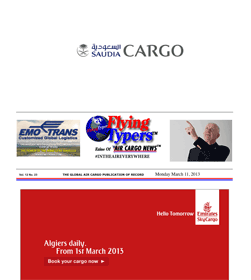
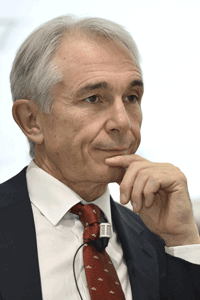 “Brotherhood
of Man, Fatherhood of God” or BOMFOG is an old
newspaper expression that describes a politician’s
stump speech; a mostly non-news talk that appears as
news, but says very little, couched in words that offend
no one. “Brotherhood
of Man, Fatherhood of God” or BOMFOG is an old
newspaper expression that describes a politician’s
stump speech; a mostly non-news talk that appears as
news, but says very little, couched in words that offend
no one.
Delivering his second
annual blessing at IATA WCS in Doha this week, IATA
Secretary General Tony Tyler was specific on many subjects,
including heaping praise on some stakeholders in air
cargo, but in fact there was little to nothing in his
speech that was news.
A nice guy and overly
big audience as WCS continues to build (thanks to Des
Vertannes, IATA Head of Cargo) for a 35-minute talk
that was, at its core, BOMFOG.
It should be noted that
Tyler’s speeches are in marked contrast to the
former IATA DG Giovanni Bisigniani, who was always confrontational
and right between the eyes about almost everything,
to the point that the blowback was quite severe from
many quarters, including some of the troops at IATA.
For example, in the e-freight
part of the talk, Tyler stressed the need for greater,
industry-wide penetration, revealing that air cargo
involvement is at about 6.8 percent nearly a decade
after e-freight began.
Bisigniani would have blown
his stack over that paltry number.
During his talk Tyler rolled
out some e-freight rationale, but interestingly mentioned
GACAG in a way that appeared to prop up the IATA effort,
which, as mentioned, has achieved implementation bupkus
in about a decade.
It is yet to be determined whether
GACAG is a beard to cover IATA’s inability to
get e-freight done.
In any case, Tyler said that
the IATA goal for 2013 is to raise that 6.8 percent
to above 20 percent, so stay tuned.
It’s not that IATA has
to do these things all by itself, but for many, Doha
is a long way to go to listen to this kind of stuff.
One area that Tyler seemed to
square up and hit the ball out of the park were his
words about the environment.
Delivered in Qatar, a place
that has been listed as home to the worst environmental
carbon impact per capita on the planet, Tyler’s
words could even be considered courageous.
Here are some highlights from
Tyler’s presentation:
“We first launched e-freight
in June 2004—nearly a decade ago.
“And we still have not
realized the paperless air freight system that I believe
we all know is needed.
“There have been some
false starts and dead ends.
“But I believe that we
are on the cusp of taking some major steps forward.
“Most importantly, the
supply chain is aligned. The Global Air Cargo Advisory
Group (GACAG) endorsed an e-freight roadmap that reflects
agreement on roles and responsibilities for pushing
this critical project forward.
“IATA is committed to
implementing the e-Air Waybill (e-AWB).
“We are targeting 20 percent
penetration by the end of this year and 100 percent
by the end of 2015.
“Sunday’s endorsement
by the Cargo Services Conference of Resolution 672 on
a ‘Multilateral e-AWB Agreement’ will certainly
help the process. In parallel to these efforts, the
International Federation of Freight Forwarders (FIATA)
and the Global Shippers Forum have agreed to push forward
with the digitalization of the rest of the document
pouch as the e-AWB comes into force.
“Our targets are ambitious
considering that e-AWB penetration was 6.8 percent at
the end of 2012.”

“Air cargo is a
global network, so the greatest benefit of security
initiatives will be derived when states mutually recognize
their security regimes.
“That is why progress
on the U.S. Air Cargo Advanced Screening (ACAS) program,
the EU’s Air Cargo or Mail Carrier operating into
the Union from a Third Country Airport (ACC3) security
directive, and the e-Cargo Security Declaration are
particularly important developments.
“Alongside security,
safety is also a top priority. 2012 was a great year
for safety. Overall, there was an average of one Western-built
jet hull loss for every 5 million flights.
“When it comes to
cargo, the focus is on dangerous goods.
“We have well-developed
dangerous goods regulations.
“Of course, most
things can be safely shipped by air—provided the
regulations are followed.
“And the industry
has a good track record of compliance.
“But over the last
year we have had two reminders that we cannot take our
eye off the ball.
“We are tracking
dangerous goods incidents and sharing this with the
industry and regulators to identify trends and develop
mitigation actions. And one early conclusion is that
we must adapt training and improve communication, particularly
with respect to the new and larger community of shippers."

“Environmental
sustainability is one of the major themes of this conference,
for good reason. The ability to manage our carbon emissions
is our license to grow.
“That is why we
are committed to improving fuel efficiency by 1.5 percent
annually to 2020, capping emissions from 2020 with carbon-neutral
growth (CNG2020), and cutting net emissions in half
by 2050 compared to 2005.
On all of these issues,
we are more successful when we are aligned and speaking
with one voice and a common goal. The basic cargo agenda
of efficiency and business sustainability is one shared
across the whole freight value chain. That’s why
GACAG was created. From the challenges of e-cargo, to
our approach on improving safety, securing the industry,
or ensuring sustainability, we are stronger if we stand
together.
“I believe that
2013 will see improvements in the industry’s prospects—including
for cargo. But it will also present challenges.”
Geoffrey/Flossie
|

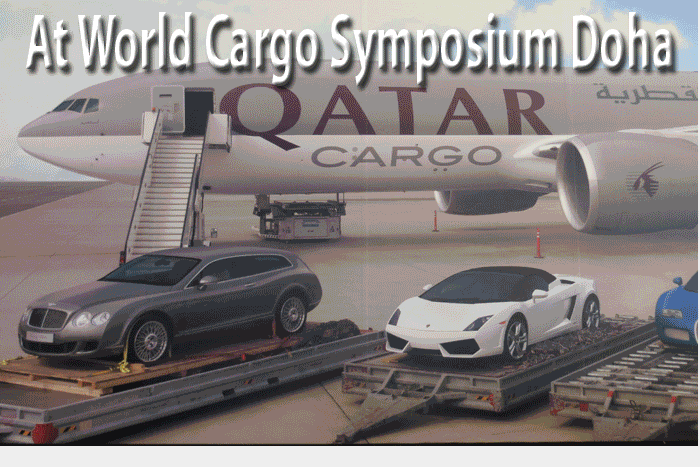
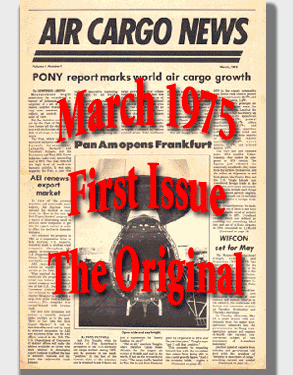







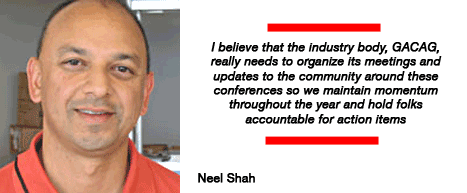 Among
the heavy traffic of top global air cargo executives
at IATA WCS this week in Doha, Qatar, Neel Jones Shah
has marked a long and distinguished career at United
Cargo and as the top executive at Delta Cargo before
moving into his own business at JS Aviation Consulting.
Among
the heavy traffic of top global air cargo executives
at IATA WCS this week in Doha, Qatar, Neel Jones Shah
has marked a long and distinguished career at United
Cargo and as the top executive at Delta Cargo before
moving into his own business at JS Aviation Consulting.

 “Brotherhood
of Man, Fatherhood of God” or BOMFOG is an old
newspaper expression that describes a politician’s
stump speech; a mostly non-news talk that appears as
news, but says very little, couched in words that offend
no one.
“Brotherhood
of Man, Fatherhood of God” or BOMFOG is an old
newspaper expression that describes a politician’s
stump speech; a mostly non-news talk that appears as
news, but says very little, couched in words that offend
no one.
 Saudi
Airlines Cargo Co. renewed a pact with Fast Forward
Cargo in the UAE for frequencies to West Africa from
Dubai World Central.
Saudi
Airlines Cargo Co. renewed a pact with Fast Forward
Cargo in the UAE for frequencies to West Africa from
Dubai World Central.
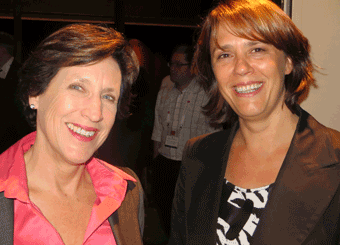

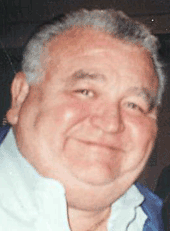 Longtime
airline stalwart and all around good guy Jack "John"
Michalek died on March 7, 2013.
Longtime
airline stalwart and all around good guy Jack "John"
Michalek died on March 7, 2013.
